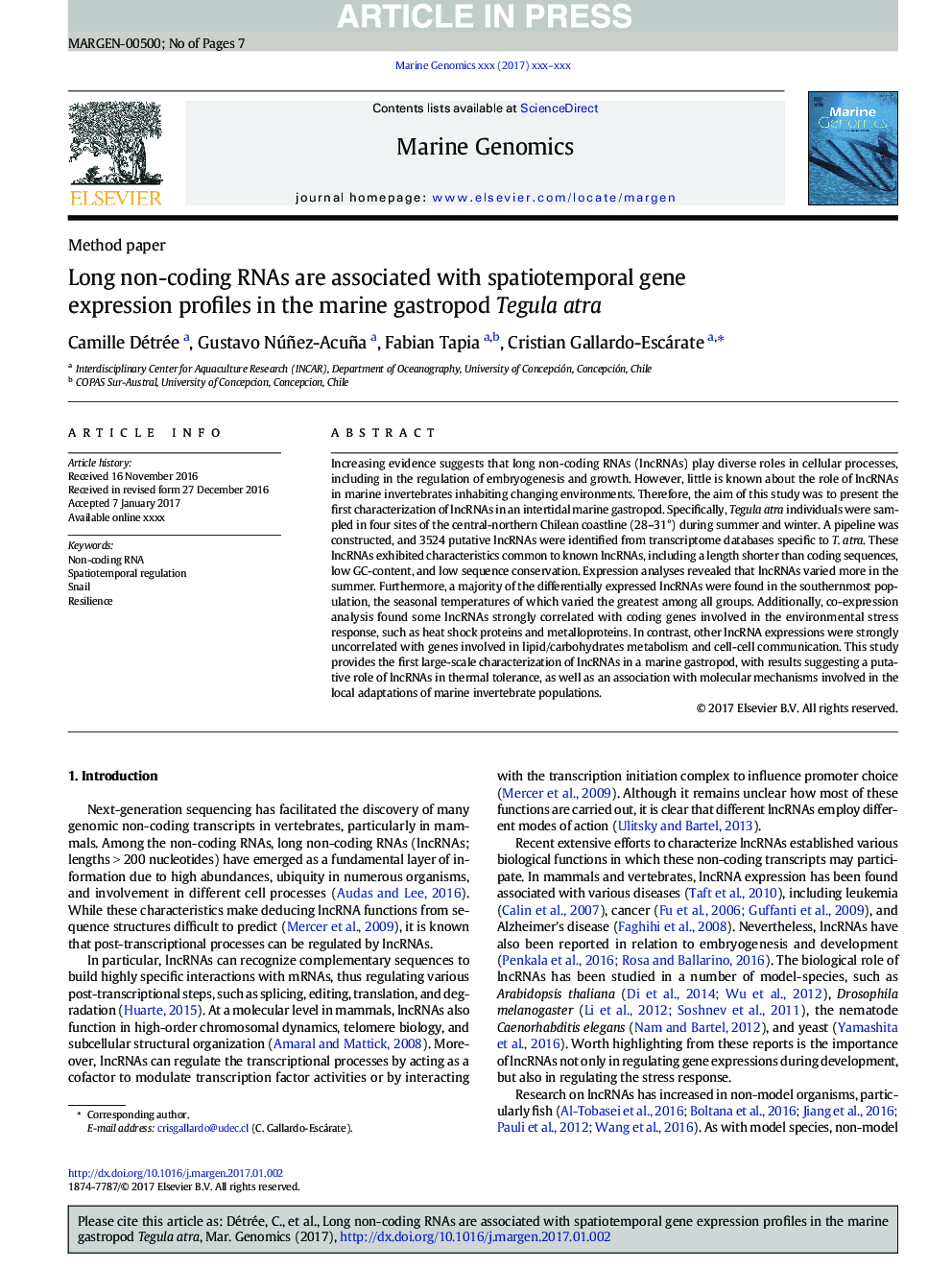| Article ID | Journal | Published Year | Pages | File Type |
|---|---|---|---|---|
| 5518239 | Marine Genomics | 2017 | 7 Pages |
Abstract
Increasing evidence suggests that long non-coding RNAs (lncRNAs) play diverse roles in cellular processes, including in the regulation of embryogenesis and growth. However, little is known about the role of lncRNAs in marine invertebrates inhabiting changing environments. Therefore, the aim of this study was to present the first characterization of lncRNAs in an intertidal marine gastropod. Specifically, Tegula atra individuals were sampled in four sites of the central-northern Chilean coastline (28-31°) during summer and winter. A pipeline was constructed, and 3524 putative lncRNAs were identified from transcriptome databases specific to T. atra. These lncRNAs exhibited characteristics common to known lncRNAs, including a length shorter than coding sequences, low GC-content, and low sequence conservation. Expression analyses revealed that lncRNAs varied more in the summer. Furthermore, a majority of the differentially expressed lncRNAs were found in the southernmost population, the seasonal temperatures of which varied the greatest among all groups. Additionally, co-expression analysis found some lncRNAs strongly correlated with coding genes involved in the environmental stress response, such as heat shock proteins and metalloproteins. In contrast, other lncRNA expressions were strongly uncorrelated with genes involved in lipid/carbohydrates metabolism and cell-cell communication. This study provides the first large-scale characterization of lncRNAs in a marine gastropod, with results suggesting a putative role of lncRNAs in thermal tolerance, as well as an association with molecular mechanisms involved in the local adaptations of marine invertebrate populations.
Keywords
Related Topics
Physical Sciences and Engineering
Earth and Planetary Sciences
Earth and Planetary Sciences (General)
Authors
Camille Détrée, Gustavo Núñez-Acuña, Fabian Tapia, Cristian Gallardo-Escárate,
